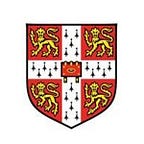The chemist who saved a restaurant and launched a vision for Africa
David Izuogu’s ambition is to establish a research institute in his home country of Nigeria. But he isn’t waiting until he realises his goal to help others get ahead.
Some people think that you need to climb up a staircase and get to the rooftop before you can begin to help others. But I believe that when you are climbing a staircase you can always help the people who are climbing with you.
We were an average Nigerian family. My parents had enough money to give us three meals a day and pay for our education. My primary school was one of the best in Delta state, Nigeria, where we lived at the time.
But our circumstances changed. During my early years at secondary school, I discovered that my parents were having to borrow money to pay the fees. I couldn’t let this happen, so I decided to leave the city and go to the local state school in my village.
My parents found it hard to provide enough food to feed everyone, so I went to stay with my aunt. My aunt had a restaurant and, while she was an amazing cook, she didn’t really know how to run the business.
I came up with strategies to attract new customers and soon we found that it was making a lot more money than before. My aunt was filled with so much joy that she promised to fund my education if I wanted to go to university.
I’d always taken my studies seriously even though, up until that point, I’d thought I wouldn’t be able to afford to go to university. This meant that when the opportunity came along, I had the grades I needed. I enrolled to study Chemistry at the University of Nigeria.
I never dreamt that I’d go to university and certainly never dreamt that I’d leave the shores of my country. However, I received the top grades in my faculty and was nominated for a scholarship for a funded exchange programme at Hokkaido University, Japan and subsequently a MSc at Tohoku University in Japan. In 2017, I received a joint scholarship to study for a PhD in computational chemistry, here at Cambridge University.
I use computational techniques to investigate single-molecule magnets (SMMs). SMMs have vast potential applications, one of which is quantum computers. At present quantum computers are theoretical but laboratory research is taking us closer to them becoming a reality.
Quantum computers have the potential to process information more than a billion times faster than the computers we use in everyday life. Their colossal processing power is due to a unit called a qubit and these could consist of SMMs.
SMMs can only exist at low temperatures of around 2–80 K, otherwise their magnetic properties are lost. My research investigates whether we can chemically adjust SMMs so that they can retain their properties at a higher temperature. If this can be achieved, quantum computers can begin to be used for practical applications like medical research and quantum information processing.
Outside the laboratory, I founded the Africa of Our Dreams Initiative (AODI). Our vision is a new Africa where individuals will thrive, and we hope to achieve this by promoting, supporting and investing in health and education, as well as youth and women empowerment.
As part of this initiative, we took 12 UK researchers to the University of Nigeria in Nsukka, and Redeemer University and Covenant University in Ota, Nigeria. The project was partly supported by the University’s Admissions Office, Gates Cambridge and the Cambridge Trust. During the visit we ran workshops, training and seminars. One of our aims was to provide opportunities for collaborations between those in the global North and global South.
One of our most successful schemes is the mentoring programme which we run in partnership with the African Society of Cambridge University. This year we matched 87 Cambridge students with young people from African nations who are aspiring to go onto postgraduate education.
I want to see an Africa where people are not just surviving but living their dreams. In the future, I’d like to set up a research institute in Nigeria with strong links to Western universities and an emphasis on commercialising the output of research, with the aim of solving some of our society’s problems.
David Izuogu of Wolfson College received funding for his PhD from Cambridge-Africa, the Cambridge Trust and the IsDB.
This profile is part of This Cambridge Life — stories from the people who make Cambridge University unique.
Words: Charis Goodyear. Photography: Lloyd Mann.
The text in this work is licensed under a Creative Commons Attribution 4.0 International License.
